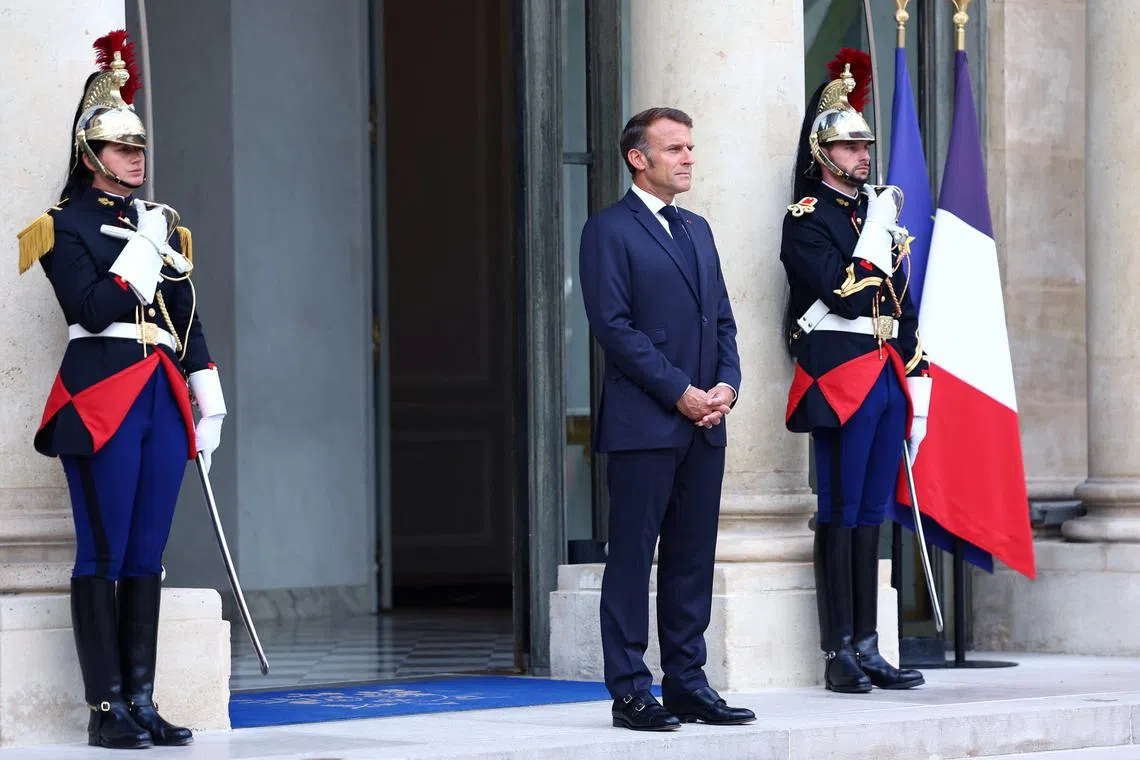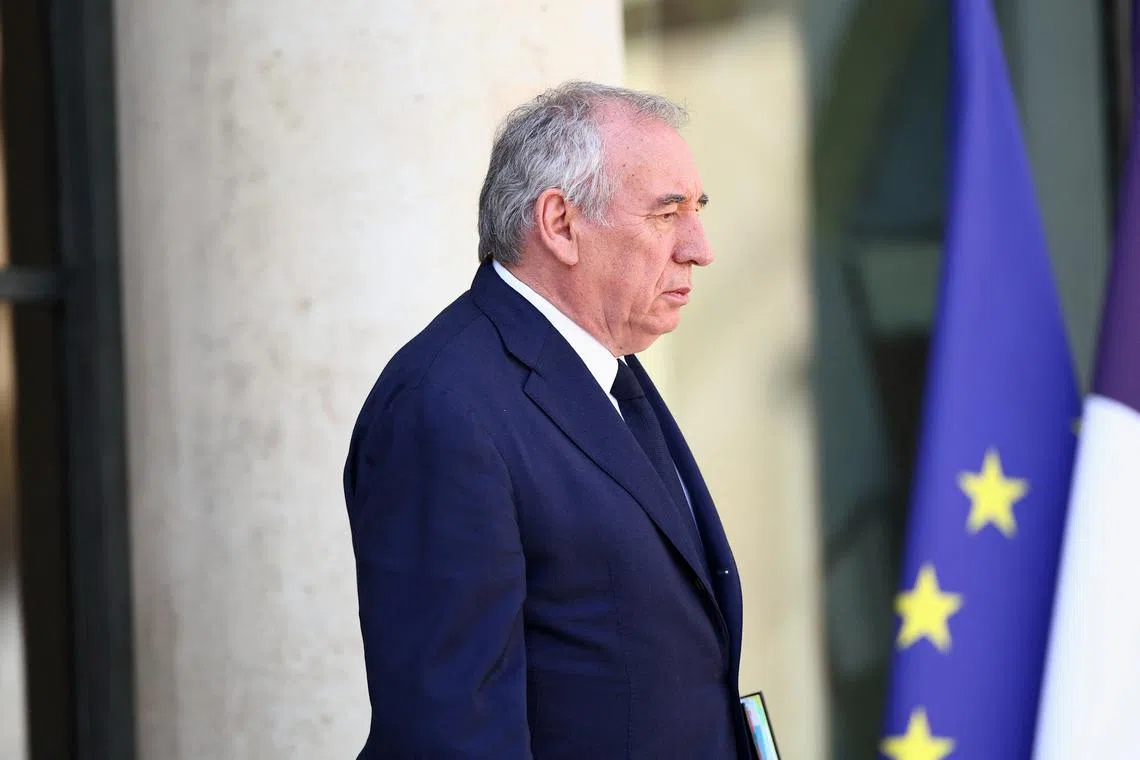Majority of French want new elections if government falls, polls show
Sign up now: Get ST's newsletters delivered to your inbox

Two-thirds of people surveyed also wanted French President Emmanuel Macron to resign.
PHOTO: REUTERS
Follow topic:
- Polls reveal that most French citizens desire new national elections amidst political dissatisfaction and economic concerns regarding debt and deficits.
- Opposition parties plan a confidence vote against PM Bayrou’s budget, while Macron avoids discussing dissolving Parliament, supporting Bayrou's strategy.
- Far-right National Rally gains support; however, uncertainty persists as analysts predict prolonged instability regardless of the outcome of the vote.
AI generated
PARIS - Most French people want new national elections, opinion polls showed on Aug 27, after opposition parties said they would bring down the minority government in a September confidence vote, throwing the euro zone's second economy back into crisis.
The polling points to deepening dissatisfaction with politics, and a risk of lasting uncertainty, in a country that has had only minority Cabinets and fragmented parliaments since President Emmanuel Macron was re-elected in 2022.
Mr Macron, whose term runs until 2027, has repeatedly ruled out resigning or calling new parliamentary elections and, though he has not publicly commented on either since Aug 25, he seems more likely to replace Prime Minister Francois Bayrou, who on Ag 25 announced the confidence vote over his 2026 budget plans.
However, a vast majority of French people want Parliament dissolved for another vote, separate surveys by Ifop, Elabe and Toluna Harris Interactive pollsters showed, with rates varying between 56 per cent and 69 per cent.
The anti-immigration, far-right National Rally (RN) got the most backing to lead the next government in one poll, although not a majority. Two-thirds of people surveyed also wanted Mr Macron to resign.
Centrist Mr Bayrou is trying to tame debt that has risen to 113.9 per cent of GDP and a deficit that was nearly double the EU’s 3 per cent limit in 2024, but the announcement triggered a steep market selloff, narrowing the gap between French and Italian 10-year bond yields.
Mr Macron did not discuss the option of dissolving Parliament during a weekly Cabinet meeting on Aug 27, government spokeswoman Sophie Primas said.
Instead, he backed Mr Bayrou’s strategy, she said, adding that Mr Macron saw no reason to be in denial, nor to overdramatise, France’s fiscal situation.
Spending freeze
Mr Bayrou called the confidence vote
That immediately backfired, with opposition parties saying they would vote him out. While they agree France’s deficit and debt are too high, the opposition disagree with him on how to tackle the problem and refuse to back him.
Mr Bayrou is proposing a €44 billion (S$65 billion) budget squeeze. He wants to scrap two public holidays
An Elabe poll for BFM TV showed 67 per cent wanted Mr Macron to resign if Mr Bayrou loses the confidence vote. The Ifop poll for LCI showed a similar result.
A Toluna Harris Interactive poll for RTL showed 41 per cent would want the far-right RN to lead the next government - the highest score for any party but without a majority. Some 59 per cent were against having an RN prime minister.
The second-highest score, at 38 per cent, was for a non-career politician to take the role.
“We want to stress that, in any case, both scenarios (i.e. new PM or snap elections) would likely mean a prolonged period of uncertainty,” Morgan Stanley analysts wrote in a note.
There is indeed no guarantee, under either scenario that any new prime minister would be able to pass the budget.

French Prime Minister Francois Bayrou leaving the weekly Cabinet meeting at the Elysee Palace in Paris on Aug 27.
PHOTO: REUTERS
Then a political outsider, Mr Macron was first elected in 2017 on promises to break the right-left divide and modernise France with growth-friendly tax cuts and reforms.
Successive crises - including protests, Covid-19 and runaway inflation - have shown he has failed to change the country’s overspending habit.
More protests have been called for Sept 10, two days after the confidence vote, by various groups with disparate aims on social media and backed by leftist parties and some unions. REUTERS

